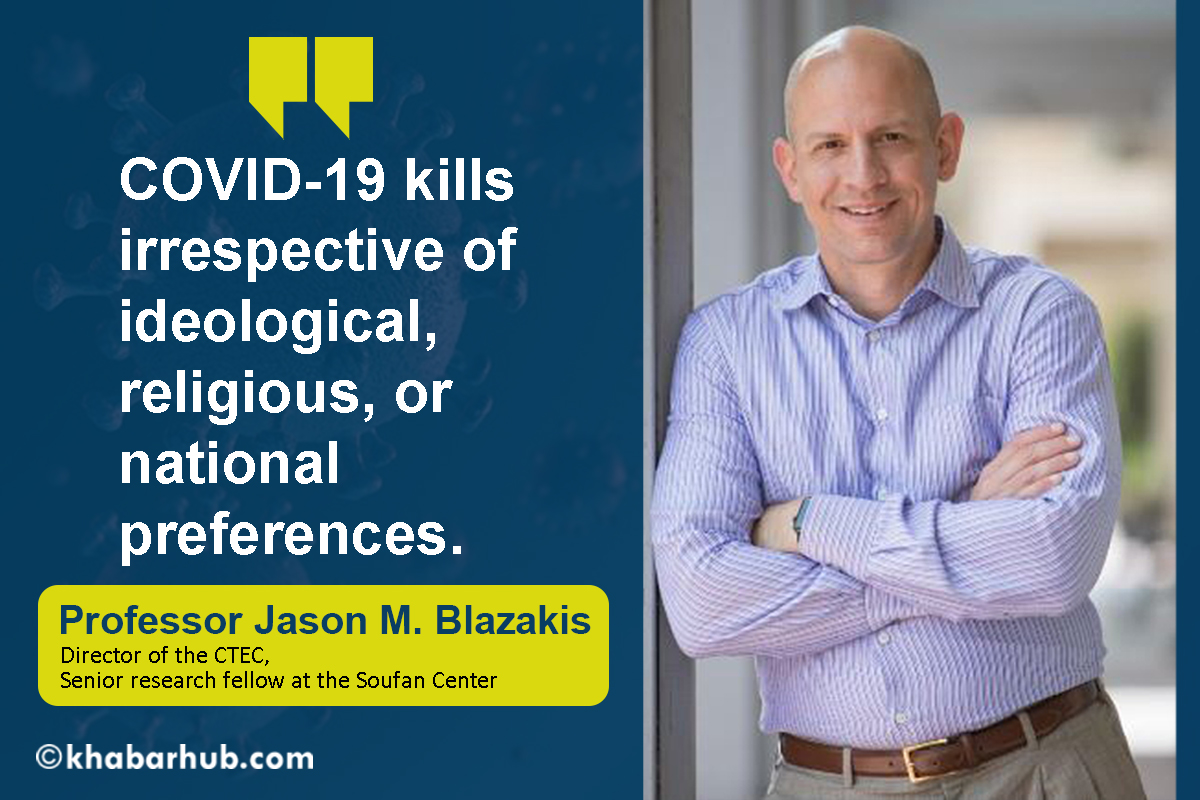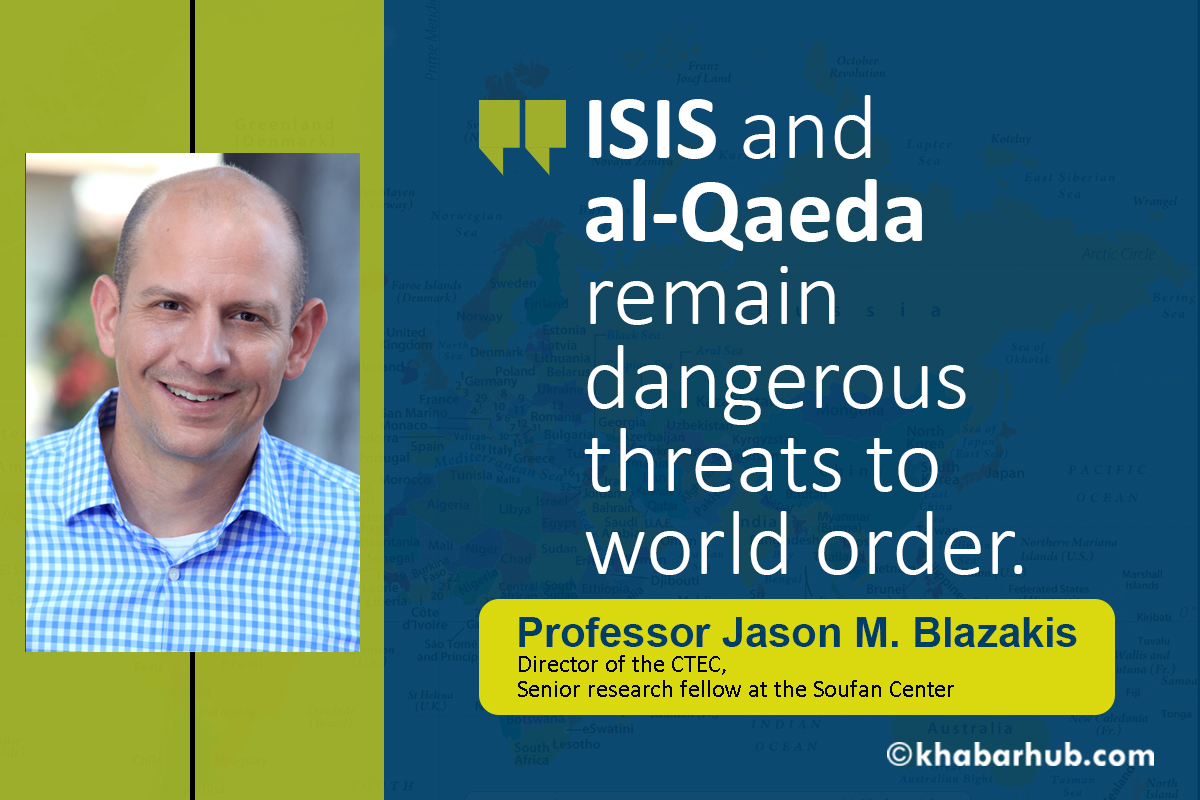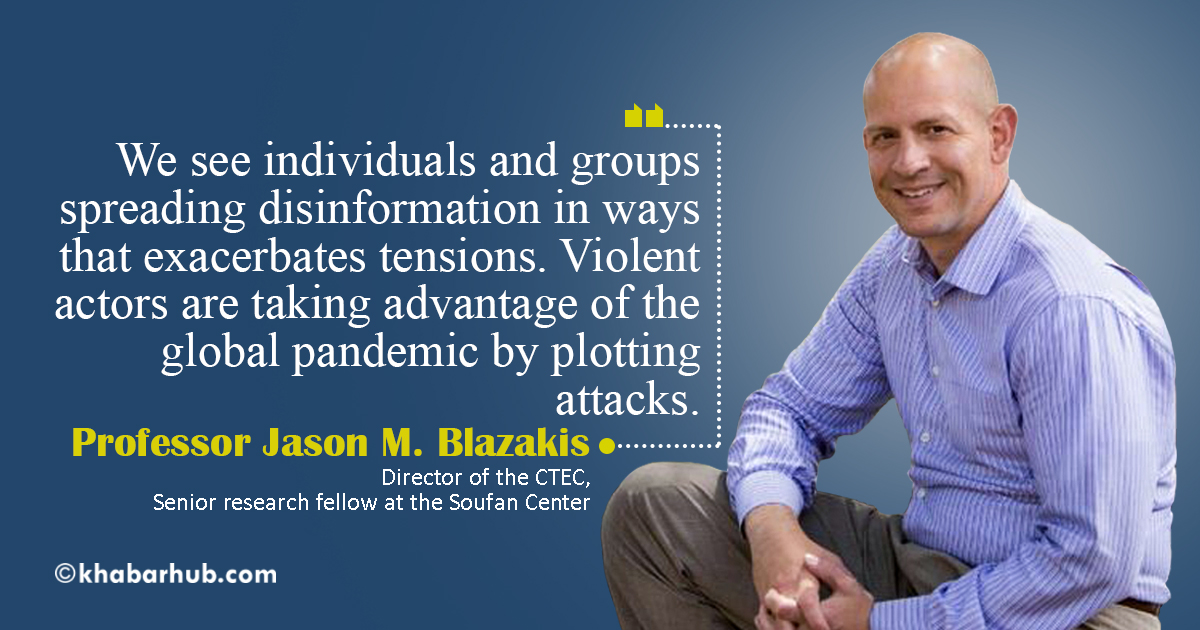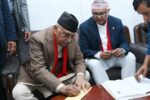KATHMANDU: Jason M. Blazakis is a Senior Research Fellow and a terrorism expert who devises strategies to prevent terrorists from gaining access to money and publicity. He currently works as Professor of Practice and Director of the Center on Terrorism, Extremism, and Counter-terrorism (CTEC) at the Middlebury Institute of International Studies at Monterrey, United States.
Jason previously held positions in the Department of State’s Political-Military Affairs, International Narcotics and Law Enforcement Affairs, Intelligence and Research Bureaus, and at U.S. Embassy Kabul. He has also served as the Director of the Counter-terrorism Terrorism Finance and Designations Office, Bureau of Counter-terrorism, U.S. Department of State.
He was also responsible for directing efforts to designate countries, organizations, and individuals as terrorists, also known as State Sponsors of Terrorism, Foreign Terrorist Organizations, and Specially Designated Global Terrorists.
Khabarhub had a conversation with Blazakis on issues ranging from disinformation on COVID-19, its impact, and terrorism, among other issues. Excerpts of the interview:
The COVID-19 pandemic has been a defining health crisis. Does this mean that the outbreak of pandemic poses a greater global threat than terrorism?
Indeed, the threat posed by COVID-19 is a greater threat to international peace and stability than terrorism. Simply put, COVID-19 kills irrespective of ideological, religious, or national preferences.
How do you see the spread of disinformation about COVID-19?
Disinformation has spread as wildly as COVID-19. Countries like China and the Russian Federation, in particular, have engaged in state-run disinformation efforts.
The United States, especially its senior leaders like President Trump and Secretary of State Pompeo have used problematic rhetoric that has accelerated tensions with China.
For instance, President Donald Trump was irresponsible in calling COVID-19 the “China Virus” or “Wuhan Virus”. This leads to the US versus them narrative that trickles down to the organizational and individual level in unhelpful ways.

As such, we also see individuals and groups spreading disinformation in ways that exacerbate tensions. This is particularly true of white supremacist groups.
How do you analyze the perceived threats or post COVID-19 world?
A number of violent actors will and are trying to take advantage of the global pandemic by plotting or staging attacks.
For example, ISIS in its Al-Naba weekly publication has said it will carry out attacks like it did in Paris and Brussels in order to create greater chaos and fear during COVID-19.
In a post-COVID-19 world, we will likely see the government shift greater resources away from counter-terrorism to health initiatives. COVID-19 has demonstrated that every nation in the world isn’t adequately prepared for a pandemic.
That shift in resources could, however, make countries more susceptible to terrorist threats in the future. There will need to be a balancing of priorities to ensure this doesn’t happen.
How do you see the disinformation and the violence-inciting motive exploiting the COVID-19 pandemic?
White supremacists, for example, have spread conspiracies that its enemies (Jews, the UN, Federal Government, George Soros) are responsible for COVID-19’s creation as part of an effort to obliterate the white race.
Obviously, this isn’t true. Yet, white supremacist groups are trying to create fear to accelerate a war against these perceived enemies.
Will the US face domestic terrorism threats in the post-COVID-19 era particularly from white supremacists and other forms of extremists?
Yes, the threat from white supremacists has been the greatest threat since 9/11. It is clear from the rhetoric and actions of radical-right wing extremists that this will remain the case in the future as well.
In Missouri, for example, a white supremacist was killed in a shoot-out as he plotted to carry out an act of violence during COVID-19.
For violent actors, COVID-19 presents a chance to strike while national, state, and local police and emergency responders have their attention diverted.
Several countries are likely to suffer from problems post COVID-19 pandemic. Do you see any specific international and domestic terrorism threat?
Yes, we are already seeing radical-right wing actors carry out attacks across the world. This is not a new phenomenon, but it is a growing one.
It will continue to increase as well as populist governments take power throughout the globe and tacitly endorse us versus them narratives that exacerbate tensions.

To change the topic, how optimistic are you about Afghanistan peace pact?
I am not at all optimistic. The Trump administration negotiated a bad deal. The Taliban will, unless there is a consistent international presence assisting the Afghan government, take over the country in less than two years.
How do you analyze the global threats posed by al-Qaeda and ISIS?
Both groups remain dangerous threats to world order. They haven’t gone away. Governments must continue to work together to counter ISIS and AQ.
Sadly, international cooperation against these groups is moving downward and because of this, these groups may re-emerge as a significant threat.
I don’t think they are capable, today, of carrying out a 9/11 attack or take over large swaths of territory. Today, they operate covertly and carry out small scale attacks.
In the future, the story may be very different. The group can possibly rebound as governments lose focus on them.
Will the COVID-19 threat limit the United States’ global engagement and global leader capabilities?
Yes, particularly if President Trump wins the election in November. However, if Vice President Biden wins, the world should expect the U.S. to re-engage with the world in a constructive manner.
For example, I could not envision a scenario where a Biden Administration would cut funding to the World Health Organization.









Comment